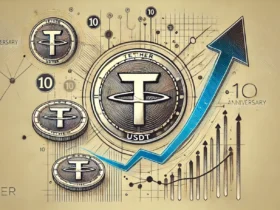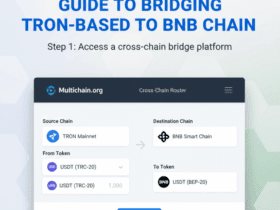This article will highlight the Best Crypto Aggregator Dashboards for Portfolio Tracking. For investors holding various cryptocurrencies across several wallets and exchanges, tracking performance, analytics, and reporting becomes an overwhelming task.
Using a Crypto Aggregator Dashboard simplifies this process. It enables real-time portfolio tracking and performance analytics.
For investors holding traditional coins, DeFi tokens, and NFTs, the Crypto Aggregator Dashboard also assists in effective gain tracking, loss tracking, and overall asset allocation maintenance which offsets the hassle of manual tax reporting.
Key Points & Best Crypto Aggregator Dashboards For Portfolio Tracking
CoinTracking – Advanced analytics and tax reporting tools
CoinStats – Syncs with wallets and exchanges, supports DeFi assets
Delta – Real-time tracking with sleek mobile interface
CoinTracker – IRS-compliant tax reports and portfolio insights
Koinly – Simplifies crypto tax calculations across jurisdictions
Zerion – DeFi-native dashboard with NFT and wallet integration
CoinMarketCap – Free tracker with broad coin coverage and news
Kubera – Tracks crypto alongside traditional assets like stocks and real estate
Accointing – Easy-to-use tax reports and performance analytics
CryptoCompare – Offers detailed charts and historical data tracking
10 Best Crypto Aggregator Dashboards For Portfolio Tracking
1. CoinTracking
CoinTracking has focused on integrating crypto portfolio tracking with tax reporting since 2012. You can import data from over 300 exchanges, wallets, and blockchains and get details on closed coins, NFTs, staking, and DeFi.
The dashboard provides insights on tax relevant reports along with realized and unrealized gains, and performance by exchange and account.

For users with several accounts and trades who also need tax insights, it is ideal. On the contrary, the interface is highly feature-rich which might pose a difficulty for casual holders.
| Feature | Description |
|---|---|
| Broad import support | Supports import from 300+ exchanges & wallets, APIs or CSVs, as well as wallets/addresses. |
| Portfolio tracking & performance | Real‑time tracking of holdings, asset distribution, unrealised and realised gains, full history. |
| Tax and report generation | Generates tax‑ready reports for many countries, supports multiple tax methods, loss tracking, etc. |
| Advanced/customisable analytics | Customisable reports (27+ types), supports NFTs/DeFi, multiple cost basis methods, audit‑ready outputs. |
2. CoinStats
CoinStats positions itself as an all-in-one crypto portfolio tracker that integrates with over 300 exchanges and wallets, tracks more than 20,000 coins, and 1,000+ DeFi protocols.
You can link your wallets and exchanges, or add your holdings manually to get live prices, analytics, alert notifications, DeFi and NFT tracking.

Reviews indicate it employs read-only API keys and strong encryption, thus it is deemed legit.
This is ideal for users seeking an expansive tracker of modern functions, including DeFi and NFT. You may need a premium subscription for some advanced functions.
| Feature | Description |
|---|---|
| Wide exchange/wallet & DeFi support | Connects with 300+ wallets/exchanges and 1,000+ DeFi protocols. |
| Large coin/universe coverage | Tracks 20,000+ cryptocurrencies. |
| Portfolio analytics and alerts | Offers profit/loss analysis, custom alerts, asset‑allocation heatmaps, wallet analyses. |
| Multi‑asset/portfolio management | Allows multiple portfolios, large transaction counts, useful for power users. |
3. Delta
Delta, offered by eToro, is an all-in-one investment-tracking tool that brings together stocks, cryptos, ETFs, forex, and more.
With respect to crypto, it lets you connect exchanges/wallets, track over 10,000 crypto assets, and create analytics or alerts on crypto assets.

If you also have stocks and bonds, it’s a great tool to have from a multi-asset perspective. The other advantage is the intuitive and uncluttered user experience.
On the other hand, the more crypto tax-specific or DeFi tracking tools are probably more detailed and enriched than the crypto aspects of Delta.
| Feature | Description |
|---|---|
| Multi‑asset tracking | Tracks crypto and other asset classes (stocks, ETFs, forex) in one place. |
| Seamless account integrations | Links wallets, exchanges, brokers; supports auto‑sync and manual transaction input. |
| Advanced portfolio analytics | Offers allocation breakdowns, risk metrics, performance over time, fee tracking. |
| Alerts & insights | Real‑time updates, custom notifications, dashboard views summarising “what’s moving”. |
4. CoinTracker
CoinTracker highlights tax and transaction tracking, along with portfolio summary: it lets you connect 500+ wallets/exchanges, track gains/losses, and sync with tax software like TurboTax.
For tax compliant portfolio tracking, it consolidates your balances, performance overview, and your tax liability.

Great for traders who need compliance and an audit-ready setup. Nonetheless, as a free tracker, the breadth of features may be more limited than portfolio-only apps.
| Feature | Description |
|---|---|
| Unified portfolio & tax | Combines portfolio tracking with tax‑report generation for crypto transactions. |
| Wide integrations | Supports 500+ exchanges/wallets, 50k+ smart contracts, 600+ dApps. |
| Gain/loss insights & optimisation | Provides unrealised/realised return charts, tax‑loss harvesting and lot‑level breakdowns. |
| Scalable and premium support | For heavy users: handle millions of transactions, concierge onboarding, dedicated account manager. |
5. Koinly
Koinly focuses on crypto tax calculation, but offers portfolio tracking as well. You can import data from over 900 exchanges and wallets to track real-time holdings, gains and losses, and income which also offers gains tracking.

For your region, India, Koinly supports tax income reporting as well. Koinly works well if you need tracking and tax reporting together.
For people only looking to look at high-end polished portfolio visuals, Koinly may not be for you, as there are less customizations than other dedicated portfolio trackers.
| Feature | Description |
|---|---|
| Extensive import/integration support | Connects with 800+ (or 900+) exchanges, wallets, blockchains. |
| Portfolio tracking + tax reporting | Tracks holdings, income (staking/mining/airdrops), gains/losses; generates tax reports. |
| Multiple cost‑basis/accounting methods | Supports FIFO, LIFO, HIFO, average cost etc—useful for varied jurisdictions. |
| DeFi, NFT, mining support | Can handle non‑standard transactions (e.g., staking, DeFi, NFTs) in tracking & reporting. |
6. Zerion
Zerion focuses on decentralized finance (DeFi) and wallet-based tracking options. It provides support for over 40 EVM chains, tracking assets, tokens, and NFTs cross liquidity and stake pools. It then tracks all of these across multiple wallets.
For users engaged with DeFi and assets over multiple wallets and chains, and not just confined to exchanges, Zerion is appropriate.

However, for assets that are predominantly based on exchanges, your options would be manual entry, or, to a degree, less automated tracking.
| Feature | Description |
|---|---|
| Multi‑chain DeFi/NFT wallet tracking | Supports 50+ EVM chains + e.g., Solana; tracks tokens, staked assets, LP positions, NFTs. |
| Unified dashboard for on‑chain portfolios | Aggregates wallet addresses across chains so you see full holdings in one place. |
| DeFi‑only focus/aggregation | Designed for DeFi users rather than centralised‑exchange items; shows protocol‑level breakdowns |
| Non‑custodial wallet integrations | Works with hardware wallets (e.g., Ledger) and doesn’t require you to move assets into it. |
7. CoinMarketCap
CoinMarketCap provides a free Portfolio Tracker service which allows you to make multiple portfolios to track various assets, input buy/sell/transfer transactions, track current portfolio balances, allocation, P&L, and cross-holdings analysis on multiple assets at once.
It covers 10,000+ cryptocurrencies, 10,000+ cryptocurrencies, offers real-time market price refreshes, and zero cost.

It is mostly designed for beginners and probably casual holders. It may be limited in certain areas, for instance, lacking advanced API integrations and comprehensive analytics, which is common in paid portfolio trackers.
| Feature | Description |
|---|---|
| Free portfolio feature | Lets you create portfolios, track buy/sell/transfer transactions, see current holdings and allocation. |
| Large coin coverage & market data | Built on the large market‑data platform; access to 10,000+ cryptocurrencies, real‑time price updates. |
| Simple interface for casual users | Ideal for buy‑and‑hold or smaller portfolios—not overly complex analytics. |
| Mobile & web access | Available via the broader CoinMarketCap ecosystem; good for lightweight tracking. |
8. Kubera
Kubera nets worth aggregator value is integrated and covers crypto along with traditional assets: stocks, bonds, real estate, cars, and collectibles.
For crypto assets, it supports exchange/wallet imports, staking/lending, tracking, and manual entry.

It is best for an investor seeing crypto just as one of many assets in their portfolio. Downsde: it’s not free and is considerably more expensive than trackers that cater only to crypto.
| Feature | Description |
|---|---|
| Holistic net‑worth tracking | Tracks crypto and traditional assets (stocks, real‑estate, cars, collectibles) in one dashboard. |
| Broad connectivity integration | Connects with thousands of banks, brokerages, wallets & exchanges globally. |
| Crypto + DeFi awareness | Supports blockchain wallets & exchanges, understands staking/lending and crypto nuances. |
| High‑end positioning | Premium product (fewer free options) targeted at serious investors wanting full‑asset breadth. |
9. Accointing
Accointing services combined crypto portfolio tracking and taxes under one simple, user-friendly interface.
With the ability to consolidate information from different exchanges, wallets, and blockchains, users get zoomed-out snapshots of their trades, transfers, and even staking rewards.

With the documentation required for tax reporting, up-to-the-minute portfolio values and cost basis tracking, Accointing does the portfolio tax paperwork even before the users need to file them.
For users from India, although Accointing integrates well globally, local Indian tax-reporting compliance (specifically compliance reporting in INR and Indian tax law) might need to be evaluated.
| Feature | Description |
|---|---|
| Multi‑Exchange & Wallet Integration | Accointing supports automatic import from 500+ exchanges and wallets, including Binance, Coinbase, and Kraken. |
| Portfolio Tracking & Analytics | Offers a real-time view of your portfolio value, asset allocation, profit/loss, and performance over time. |
| Tax Reporting & Compliance | Generates tax-ready reports compliant with multiple jurisdictions. |
| DeFi & NFT Support | Accointing can track DeFi protocols, staking rewards, liquidity pools, and NFTs across multiple wallets. |
10. CryptoCompare
CryptoCompare provides a free portfolio tool where you can track your buys, sells, overall value, profit/loss, and keep track of numerous coins.
It’s a simpler, lower-cost option for monitoring your holdings which is good for someone who just wants basic tracking rather than the whole shebang.

That being said, the automation (wallet/exchange import) might not be as complete as what some specialists offer.
| Feature | Description |
|---|---|
| Free portfolio tracker | Lets you track holdings, acquisition cost, realised/unrealised P&L, best/worst performing coin. |
| Live price data & charts | Built on a market‑data site offering real‑time and historical crypto data for many coins. |
| Simple and lightweight | Good for users wanting basic tracking of buys/sells without heavy tax‑reporting or DeFi depth. |
| Developer & data‑friendly | Also offers API/data tools suitable for more technical users or developers monitoring crypto markets. |
Conclusion
In summary, the top crypto aggregator dashboards streamline the management of portfolios by offering real-time monitoring, analysis, and tax reporting.
Services such as CoinTracking, CoinStats, Delta, Koinly, Accointing, and Zerion accommodate varying customer requirements, ranging from beginner traders to highly involved users in DeFi and NFT.
Factors such as asset type, connection to exchanges, tax obligations, and the intricacies of one’s portfolio all come into play in the selection of the suitable aggregator.
FAQ
A platform that consolidates all your crypto holdings from multiple wallets and exchanges into one view.
To monitor holdings, track profits/losses, analyse performance, and simplify tax reporting.
Yes, most use read-only API keys and encryption, ensuring funds cannot be moved.
Many, like Zerion and Accointing, track DeFi, staking, and NFT holdings.
Yes, top dashboards support hundreds of exchanges and wallets.














Got a Questions?
Find us on Socials or Contact us and we’ll get back to you as soon as possible.